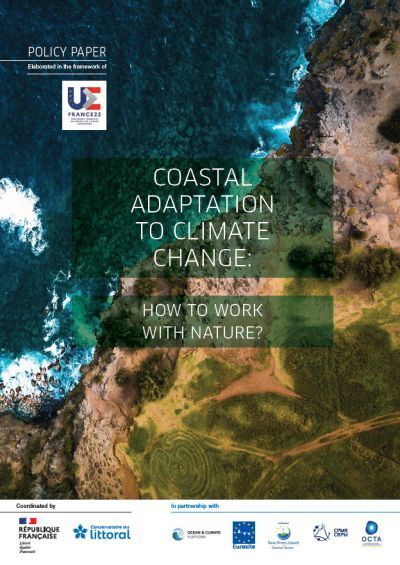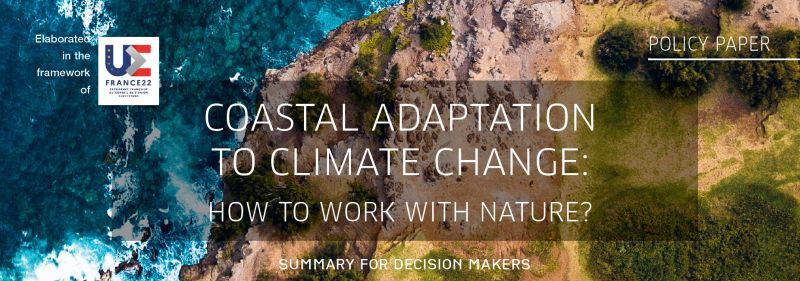On the occasion of the French presidency of the Council of the European Union, the Conservatoire du littoral, in partnership with the Ocean Climate Platform (POC), the Eurosite association, the association of Overseas Countries and Territories ( OCTA), the interparliamentary group SEARICA (Seas, Rivers, Islands and Coastal Areas) and the Conference of Peripheral Maritime Regions (CPMR) organized in Marseille, France, from 15 to 17 June 2022, an international workshop on coastal adaptation to climate change. The aim of this event was to intensify cooperation between European and Mediterranean Coastal Agencies, and other stakeholders by developing reflections and strategies on the adaptation of coastal territories to climate change.
The Steering Committee for this event decided to draw up a Policy Paper based on the feedback from the Coastal Agencies and including recommendations and strategies developed jointly during discussions held before and during the event with more around thirty European and Mediterranean institutions and organisations. This publication targets various issues related to adaptation to climate change in coastal areas and is centered around two main axes:
1 . An axis oriented towards natural and unbuilt areas (protected areas, agricultural land, forest areas, natural heritage);
2. A second axis relating to the interaction between natural and urbanized spaces (cities, roads, ports, airports, tourist infrastructures exposed to the impacts of climate change, etc.).
This Policy Paper was intended to be addressed to representatives of the European Union, Member States, coastal regions and towns so that it can serve as a tool for rethinking the future of our coastal territories now in the face of the greatest challenge of our century, and act to guarantee the security, economic development and well-being of the populations who live there as well as the safeguard of ecosystems and island and coastal biodiversity.
ECFAS’s Dr. Angelique Melet, Mercator Ocean International, was a contributor to this policy brief. ECFAS is mentioned in the document as a forthcoming tool that can support flood risk management in the face of sea level rise and climate change.

